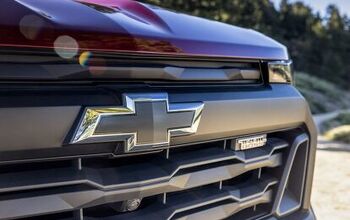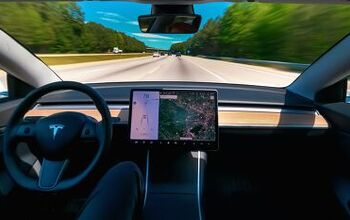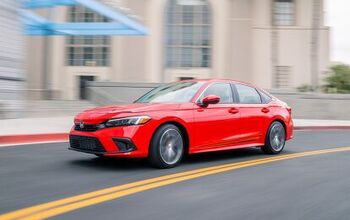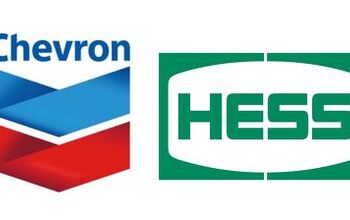Renault and Nissan Will Share EV Platform, Postponing the Leaf's Future

Renault and Nissan will build the next-generation Zoe and Leaf electric cars using a shared platform. The cooperative endeavor should result in leaner, cleaner, and better EV technologies — something the Japanese automaker needs to implement immediately in the helplessly floundering Leaf.
While the models will have their own distinct styling, they will share the same basic framework and electric motors. Arnaud Deboeuf, senior vice president of Renault-Nissan BV, said that the new generations of the Zoe and Leaf would compete in the same segment. However, since the current Zoe is a supermini, it will need to be sized up into a compact or the Leaf will need to be miniaturized slightly.
Speaking to Automotive News, Deboeuf avoided giving a timetable for the launch for the new EVs, but suggested that it would happen after the planned Leaf refresh in 2018. France’s Les Echos reported that the Zoe wouldn’t appear before 2020. That’s a long time for the Leaf to wait as the EV landscape continues to shift.
These are not the Nissan Leaf’s salad days. No longer a technological breakthrough, the EV has hit some very hard times. Stronger competition, cheaper gas, and wild deprecation have harmed the little electric. North American Leaf sales peaked in 2014 and have plummeted since then and the car needs away to turn that around before 2020.
Nissan’s Leaf started life with a 73-mile range in 2011, boosted that to 84 miles in 2013, and introduced a 30 kilowatt-hour battery that stretched the range to 107 miles for this year. While that helped it keep pace with other BEVs, it has slowly lost ground. It also can’t stretch that range much more without a drastic redesign, effectively keeping it a short-distance commuter. That isn’t good news considering that the Tesla Model 3 and Chevrolet Bolt will have twice the range for a few thousand dollars more.
Renault recently produced an upgraded Zoe with 400 km (250 miles) of range from a single charge. The French manufacturer receives its lithium-ion pouch cells from LG Chem and Nissan could benefit greatly if some of those higher-density batteries found their way into the 107-mile Leaf before 2020. However, Carlos Ghosn, CEO of Renault and Nissan, stated earlier this year that he didn’t feel that range would be the most important factor for EV success.
“The [range] anxiety is going to be eliminated only when we have a charging structure that is widespread and visible,” he said. “You go through many cars in your life. I never ask myself, ‘What is the range of your car?’ Why would you when you have gasoline stations all over the place. I know I could stop at any moment and charge my car … So this is going to be the real and final answer.”
That charging network isn’t in place yet and, even when it is, vehicles with the ability to travel long distances between stops will remain desirable. Someone might want to tell Ghosn that is why there were almost 400,000 preorders for Tesla’s Model 3 right after it was announced. It’s also why Nissan’s own e-Power system was such a sensation.
Ghosn has said the Leaf will compete with the Bolt, but it needs it now, not in a few more years when sales are even worse and its been lost in the mix of lesser EVs. However, that’s the timeline we have been given. Deboeuf said that the choice to develop a new shared-platform model wasn’t made lightly, adding that it has taken a long time for Nissan and Renault to become aligned on the project.
Hopefully the Leaf endure few more years worth of beatings.
[Image: Nissan]

A staunch consumer advocate tracking industry trends and regulation. Before joining TTAC, Matt spent a decade working for marketing and research firms based in NYC. Clients included several of the world’s largest automakers, global tire brands, and aftermarket part suppliers. Dissatisfied with the corporate world and resentful of having to wear suits everyday, he pivoted to writing about cars. Since then, that man has become an ardent supporter of the right-to-repair movement, been interviewed on the auto industry by national radio broadcasts, driven more rental cars than anyone ever should, participated in amateur rallying events, and received the requisite minimum training as sanctioned by the SCCA. Handy with a wrench, Matt grew up surrounded by Detroit auto workers and managed to get a pizza delivery job before he was legally eligible. He later found himself driving box trucks through Manhattan, guaranteeing future sympathy for actual truckers. He continues to conduct research pertaining to the automotive sector as an independent contractor and has since moved back to his native Michigan, closer to where the cars are born. A contrarian, Matt claims to prefer understeer — stating that front and all-wheel drive vehicles cater best to his driving style.
More by Matt Posky
Latest Car Reviews
Read moreLatest Product Reviews
Read moreRecent Comments
- ToolGuy TG likes price reductions.
- ToolGuy I could go for a Mustang with a Subaru powertrain. (Maybe some additional ground clearance.)
- ToolGuy Does Tim Healey care about TTAC? 😉
- ToolGuy I am slashing my food budget by 1%.
- ToolGuy TG grows skeptical about his government protecting him from bad decisions.


































Comments
Join the conversation
Used Leafs are killing the new Leaf business, but I don't think the used-car industry knows what to do with them. Autotrader is full of Leafs, all priced around $8k, regardless of age, mileage, or trim level. It makes no sense relative to how gasoline used cars are priced. Now, if $4k would buy me a Leaf with a solid 50 miles of range, I could justify one for commuter duty, but at $8k, I might as well commute in what I have.
"it has taken a long time for Nissan and Renault to become aligned on the project." I would hope so. Nissan agreeing to shrink the Leaf so Renault can find a non-US applicable answer to fit both brands should take even longer. The Leaf was a cool thing, it's dead now.